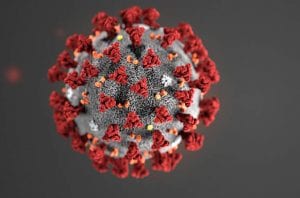COVID-19 deaths increase to more than 3,000, forcing many travelers to cancel or postpone their trip.

In the past, more than 95 percent of active cases were in China, but that’s dropped to 81 percent. More than nine percent of COVID-19 cases are in South Korea, four percent in Italy, 2 percent in Iran and a half percent in Japan.
In the last week, travelers have regularly asked if they should cancel, postpone or take a trip due to the world-wide COVID-19 outbreak. It has reached 65 nations. My answer is the same as it’s been during other crises: Safety and health must always be a traveler’s primary consideration.
To make a decision to travel during the COVID-19 outbreak, travelers first need to learn about COVID-19. While there remain many unknowns about the virus, we know enough to start to make travel decisions. Here are the most important aspects of the virus travelers need to know.
Publisher note: Due to the changing nature of this threat, check the
Centers for Disease Control Site for the latest information.
See also this John Hopkins coronavirus (COVID-19) tracker
What do we know about COVID-19?
Symptoms and infectiousness:
We know that patients who display typical COVID-19 symptoms, including fever, cough, and shortness of breath, are infectious. We don’t know if the virus can be transmitted asymptomatically.
Most vulnerable:
Anyone can become infected. However, older people, particularly men, those with compromised immune systems and respiratory illnesses, heart disease and diabetes, plus those already otherwise sick, are the most vulnerable.
How it is spread:
The disease spreads through respiratory droplets, via coughing, sneezing or speaking. Contact with infected saliva, hand touching or touching an object or surface with the virus on it, then touching one’s mouth, nose, or eyes, can also infect anyone.
COVID-19’s mortality rate is less than SARS, but it’s more dangerous than SARS because of its transmission rate
Mortality rate:
The COVID-19 mortality rate is approximately 3.4 percent, less than a quarter of SARS, but COVID-19 is more easily transmitted than SARS. It took SARS nine months to infect 8,000 people. COVID-19 has infected almost 90,000 in less than half that time. The transmission rate makes COVID-19 particularly dangerous.
Vaccines and drugs:
While many influenza cases are prevented or rendered less harmful by the flu shot, no drugs or vaccines specifically designed to treat or prevent COVID-19 are currently available.
Once travelers understand basic COVID-19 characteristics, they must perform a travel risk assessment by asking pertinent questions. Travelers can then make informed decisions about upcoming journeys.
If you’re among the most vulnerable to COVID-19, you’re going to have to postpone travel or cancel travel to be safe
Are you among the more vulnerable travelers to COVID-19?
Senior citizens with a respiratory condition, heart disease, diabetes, a compromised immune system or another serious condition are the most vulnerable to COVID-19.
Is your destination(s) a location to avoid?
Is your destination China, South Korea, Italy or Iran, considering the significant number of existing infections and the growing number of infections? Avoid these locations until the situation changes. For travel to countries such as Japan, France, and Germany, or countries with fewer cases, the decision is more difficult. Most can travel unless they’re particularly vulnerable to the virus.
Three excellent resources to research COVID-19 at destinations are: the Johns Hopkins CSSE COVID-19 map and statistic page, the Centers for Disease Control (CDC) Coronavirus Disease 2019 (COVID-19) Situation Summary and the World Health Organization (WHO) Rolling updates on COVID-19 page.
Are you flying or taking a cruise?
Airlines are canceling flights to COVID-19 hotspots, sometimes without notice. Recently, American Airlines had to suspend flights to Milan, Italy, when a flight crew refused to fly from New York to Milan at the last minute. Air travelers must be prepared for flight cancellations that delay or even force the cancellation of journeys. Cruise lines are finding that if any crew members or passengers become sick, displaying symptoms of COVID-19 may delay or cancel a cruise. Even with another respiratory illness, such as the flu, the ship may be refused port entry. This lessens the value of their cruise, sometimes significantly. Uncertainty increases for cruisers daily as the outbreak continues.
In the uncertain times of the COVID-19 outbreak, “cancel for any reason” travel insurance is becoming essential
Do you have travel insurance?
Unless you can cancel your reservations fully, without penalty, consider postponing planning travel. Or, purchase travel insurance if you can. At this time, the only travel insurance I’d purchase is a “cancel for any reason” policy. If your trip is already planned, it’s likely too late to purchase this kind of insurance. Be aware that the standard policies that pay for “named perils” normally exclude epidemics and pandemics. Carefully review the policy you’re considering before you buy it.
What happens if you get sick while traveling?
Beware that if you get sick while traveling and it’s influenza or another respiratory virus other than COVID-19, authorities will assume it’s COVID-19 until they prove otherwise. They will treat you accordingly. It may end your trip and possibly cause a significant delay for a return home.
It’s critical to assess your travel risk, then use the assessment to minimize your risk
While you’re learning about COVID-19 and asking questions to try to eliminate its health risk, be aware that it’s impossible to know where the next infected person will turn up. There will always be risk when you travel, especially these days. Your travel planning mission is to minimize your risk. After I’ve assessed my travel risks, while I love meeting people across the globe and seeing new, exciting locations, I always err on the side of safety and health.
The latest Travelers United poll on changing travel plans:
Has the current COVID-19 outbreak caused you to cancel or postpone a trip?
- Canceled a planned cruise/trip – 9.9%
- Not be going overseas this year – 7.4%
- Vacationing in the U.S. this year – 6.6%
- Staying home until it’s over – 15.7%
- Still taking my planned trip(s) this year – 60.3%
After many years working in corporate America as a chemical engineer, executive and eventually CFO of a multinational manufacturer, Ned founded a tech consulting company and later restarted NSL Photography, his photography business. Before entering the corporate world, Ned worked as a Public Health Engineer for the Philadelphia Department of Public Health. As a well known corporate, travel and wildlife photographer, Ned travels the world writing about travel and photography, as well as running photography workshops, seminars and photowalks. Visit Ned’s Photography Blog and Galleries.



